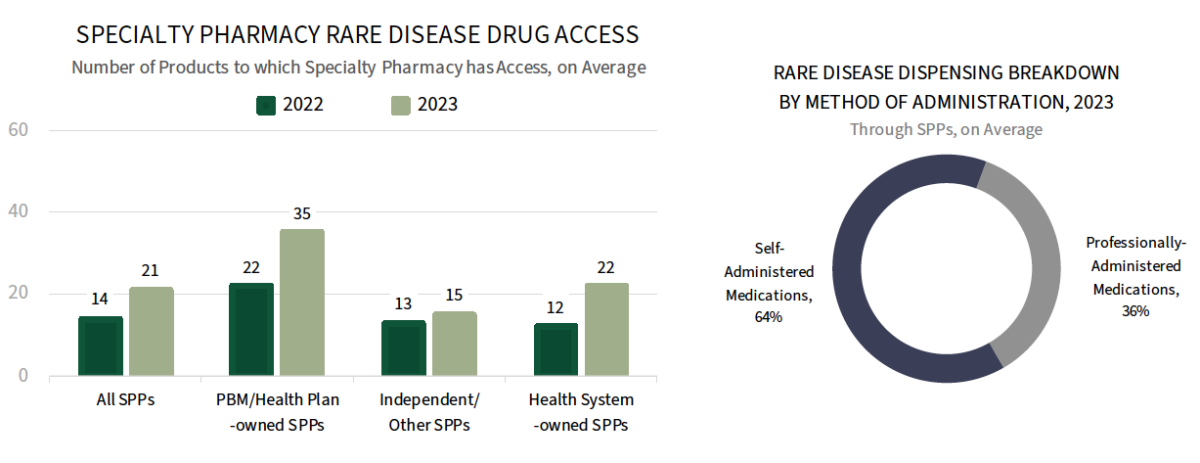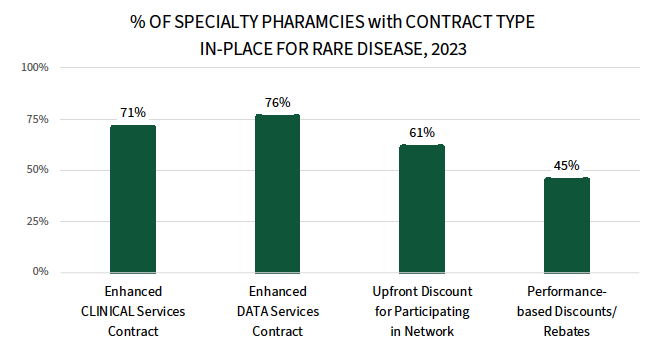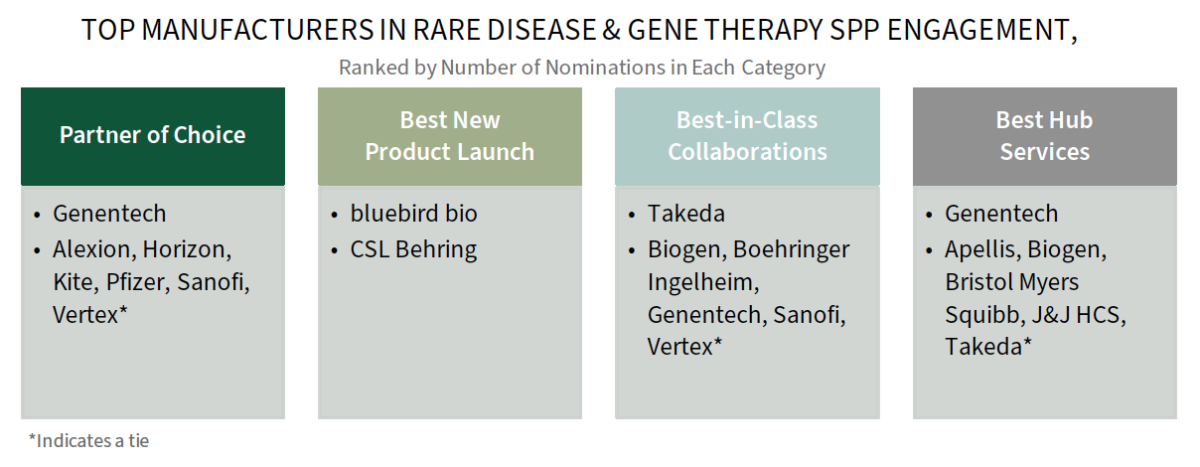Rare Disease & Gene Therapy: Specialty Pharmacy Distribution and Manufacturer Engagement
Highlights of the report:
Download a PDF of these Highlights
Specialty pharmacies are developing robust and unique capabilities to support the upcoming pipeline of rare disease & gene therapies, and can serve as strong partners in patient access and adherence. HIRC’s report, Rare Disease & Gene Therapy: Specialty Pharmacy Provider Distribution & Manufacturer Engagement, examines issues in dispensing and distribution networks, and evaluates best-in-class manufacturer support. The report addresses the following:
- What do specialty pharmacy providers (SPPs) report as their access to rare disease & gene therapy medications? How does this vary by SPP ownership type?
- What are the trends in manufacturer distribution networks for rare disease & gene therapies?
- What are SPPs' capabilities in rare disease dispensing? How does this differ by SPP ownership type?
- What contracting approaches are manufacturers engaging in to support SPPs' clinical and data collection activities for rare diseases?
- Which manufacturers are considered best-in-class in SPP rare disease engagement?
- What do SPPs and their patients need going forward to best ensure access and adherence to rare disease and gene therapy treatments?
Key Finding: To best support rare disease dispensing, specialty pharmacies request early pre-launch engagement, easy-to-access patient financial assistance programs, and robust patient & clinical staff education.
Specialty Pharmacy Rare Disease Dispensing Overview. Roughly 64% of the rare disease medications dispensed by SPPs are self-administered, while professionally-administered medications account for 36%. Specialty pharmacy providers report access to 21 rare disease or gene therapy products on average in 2023, with PBM/Health plan-owned SPPs reporting access to a larger number of rare disease products compared to independent/other and health system-owned SPPs, though all report an increase in number of products year-over-year.

The full report examines SPP rare disease dispensing trends across 18+ unique therapeutic areas and considerations for network selection.
Specialty Pharmacy Contracting Approaches in Rare Disease. Contracts between manufacturers and specialty pharmacies are relatively common in rare disease, especially to support rare cancers, rare kidney diseases, and gene therapies. Enhanced clinical & data service contracts are reported most often. Roughly three-quarters of SPPs report having an enhanced clinical or data services contract in-place to support rare disease products.

The complete report examines the contracting environment in detail across 18+ rare disease areas and by type of SPP.
Genentech Leads in Rare Disease Engagement with SPPs. Plans were asked to consider and provide a best-in-class manufacturer nominations across four rare disease engagement parameters as noted below. Genentech is consistently among those nominated as best across categories.

Because rare disease distribution networks are often quite small, there is likely a high amount of variability around which manufacturers a specific specialty pharmacy is interacting with. Going forward, specialty pharmacies would like to see early engagement from manufacturers on rare disease, with clear expectations around data collection and clinical requirements.
Research Methodology and Report Availability. In September, HIRC surveyed 38 PBM/health plan-owned, health system-owned, and independent/other specialty pharmacy providers. Online surveys and follow-up telephone interviews were used to gather information. The Rare Disease & Gene Therapy: Specialty Pharmacy Provider Distribution & Manufacturer Engagement report is part of the Specialty Pharmaceuticals Service, and is now available to subscribers at www.hirc.com.
Download a PDF of these Highlights
Download Full Report (Subscribers only) >


